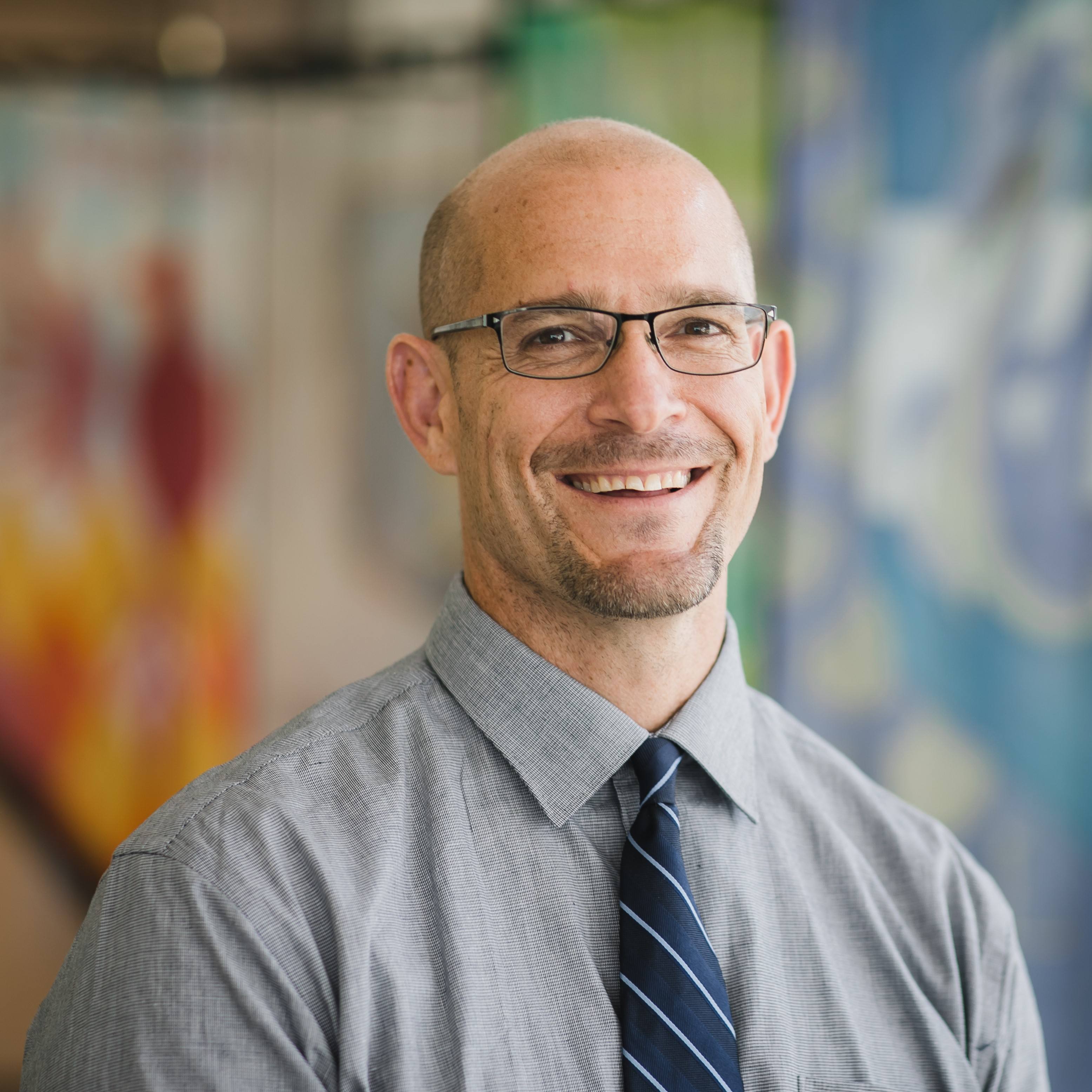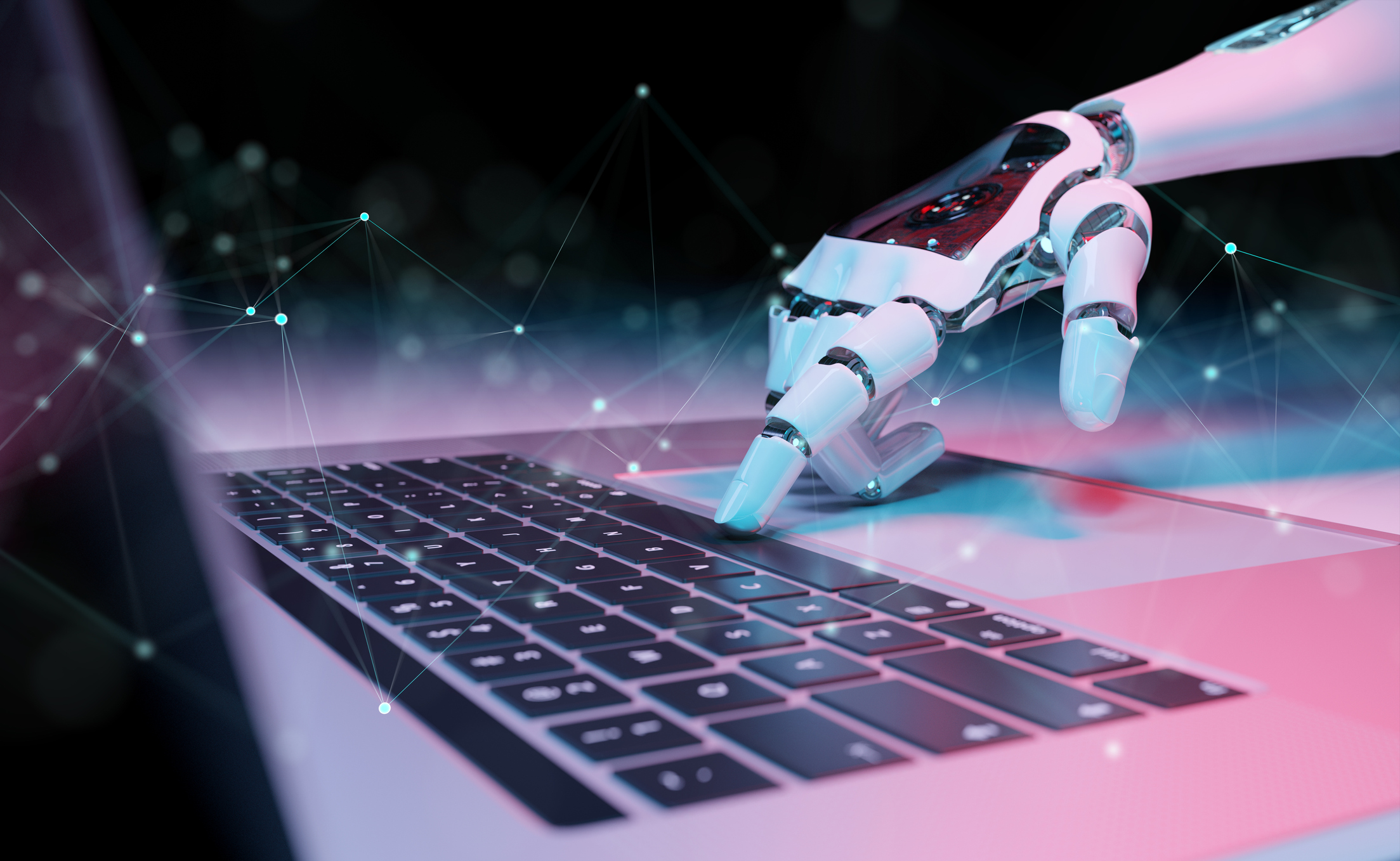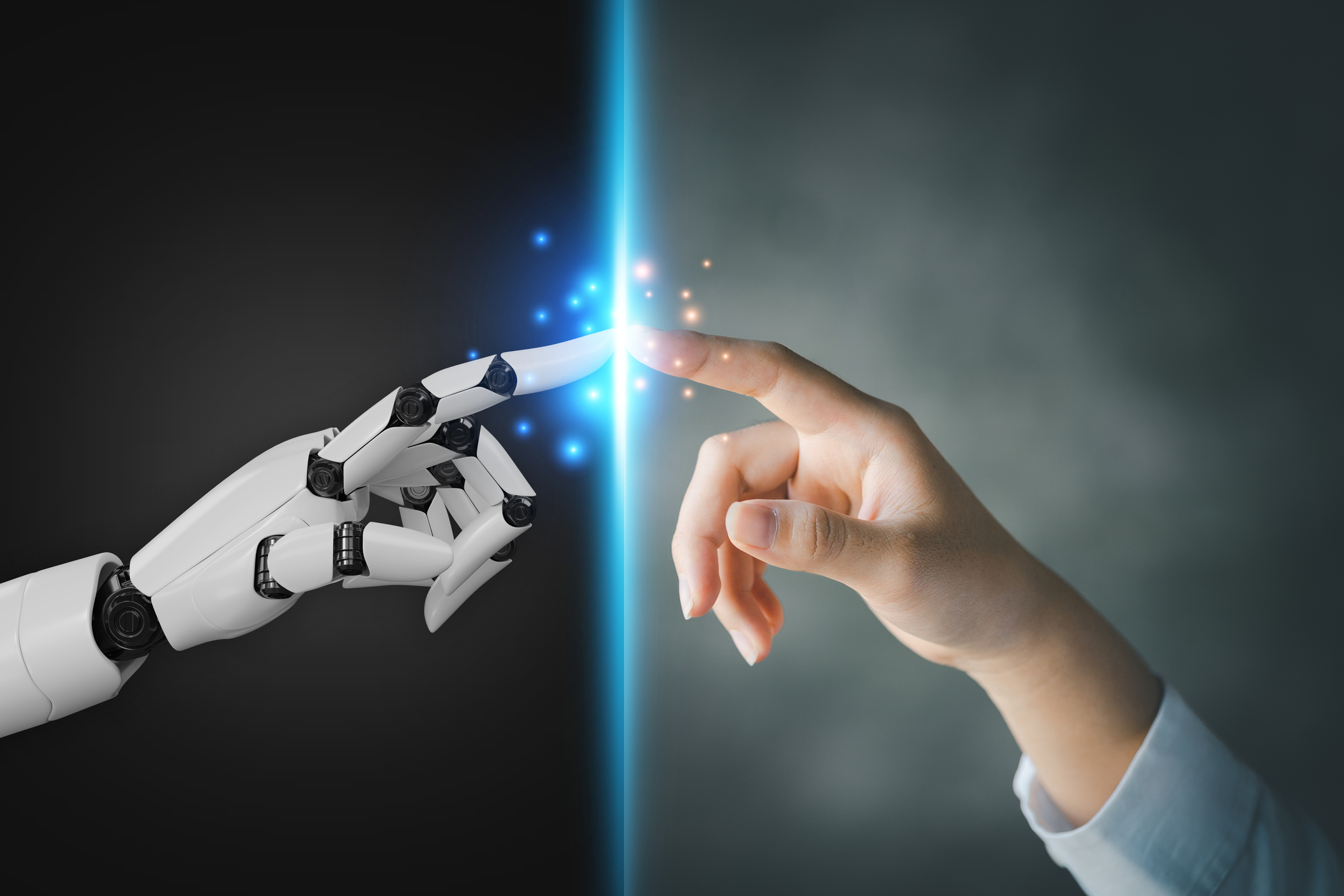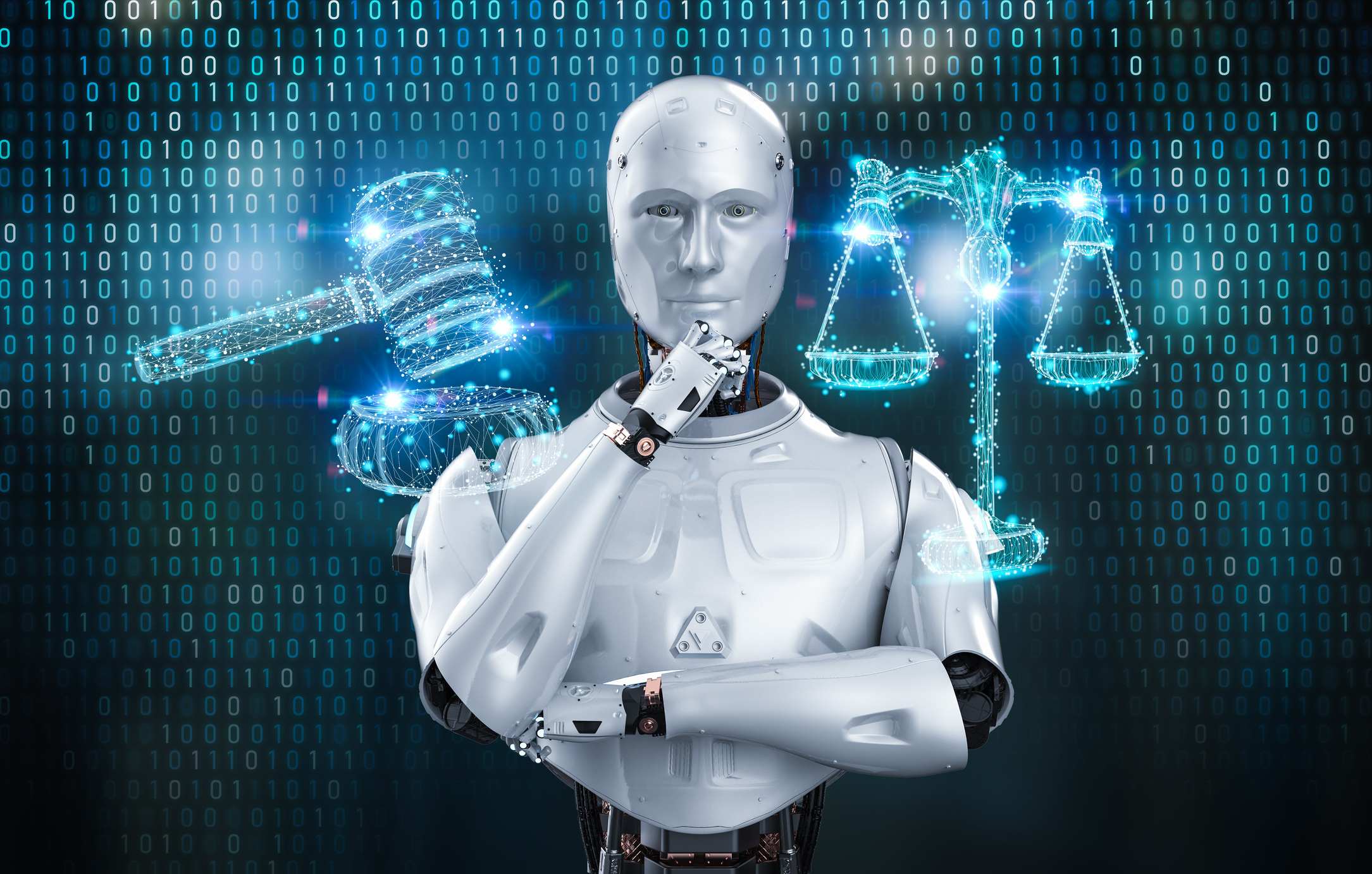AI in School: The Dawn of an Artificially Educated Age
By Brad Finkbeiner

Brad Finkbeiner has taught within the ACCS since 1999, including courses in Logic, Debate, Ancient History, European History I and II, Great Ideas I and II, Ethics, and Apologetics. He majored in Bible and Theology at Washington Bible College and earned an MA in the Liberal Arts at St. John’s College. In addition to developing curricula, Brad authored the textbook With All Your Mind: A Course on Logic and Argument for the Christian Classroom. Since 2016, he has taught at Providence Classical School in Spring, TX, where he lives with his wife and four children.
We all know how the internet, smartphones, and social media have altered our children’s experience of life. Well, now there is a new kid on the block. News outlets and social media have been abuzz about ChatGPT, a computer program that can produce customized poems, songs, essays, books, language translations, job applications, computer code, assembly instructions, recipes, legal briefs, and so on, and that can do so for free and on demand.
To appreciate all the fuss, you should create an account and try it out yourself. It’s one of those things you must see to believe. It is far more advanced than you might initially think. Perhaps you can give it the following command: “Write an argument proving that AI will ruin the education of American youth.”
The week before Christmas I emailed the parents of my juniors and seniors about the new technology and my conversation with students concerning its implications.
How can Providence Classical School help your child find answers to life’s big questions? Watch our film and schedule a tour today!
Artificial Intelligence and Plagiarism
The first thing I noted is that the potential for plagiarism is at a whole new order of magnitude. The AI can write a coherent, informative, custom-tailored and unique essay within 1-3 minutes. For example, we had it write out an essay using the theses of our current seniors. The result was similar to what some of the seniors produced after months of research, reflection, and writing. You need to understand that what the AI produces is a one-and-done paper; it is written just for that student, in just that way, and at just that time. So, if we suspect a student plagiarized, we will find nothing online to verify that, since there is nothing “out there” to be found.
Most teachers stand helpless before this technology. The teacher will have to have a strong familiarity with the student’s style to detect plagiarism. A clever student can modify the AI-generated essay to reflect his or her voice and style. As one person said, the art of writing will devolve into the art of editing. Students can do the same thing with mathematics, science, coding, translations, poems, etc. It’s unreal.
Schools with large classes and no Christian moral conviction will be overrun with plagiarism. Schools across the country recently forbade their students from using it, though they have no effective way to enforce it. Research over the last month (January 2023) proves that many students are already freely using it to write papers and pass tests. Ivy League professors have expressed amazement at the caliber of the artificial writings. AI often gets better test grades than graduate students. Until schools force students to surrender their phones and to handwrite their work in class, there appears to be no reliable way to stop this plagiarism.
Thankfully, Providence Classical School, with its small classes, invested teachers, and constant emphasis on honoring the Lord has something of a fighting chance. I told students that the main thing standing in the way of plagiarism is a sanctified conscience.
Image by David Gyung on iStock.
Artificial Intelligence and Careers
The second thing we discussed is the career changes AI will bring. Some suspect that many jobs will become obsolete. AI is already capable of outperforming people with four-year degrees. It is likely that some industries and companies will invest in AI to reduce the number of employees and human error and to maximize profits. Ironically, the computer geniuses may be putting their own types out of jobs.
Since I wrote the email in December, I have read projections on how AI will displace people even within the more lucrative fields of law, medicine, and engineering. It’s claimed that some can remain in those careers only by working with AI rather than around it. I should add that the tech is growing exponentially powerful, so these predictions may be more plausible than they presently seem.
In any case, students need to think long and hard about which career paths to pursue and which to avoid in the event that their degrees become useless before they know it. Parents have an extra burden to think ahead.
Concerning my own field of teaching, it seems reasonable to think that AI will put a certain type of teacher — perhaps the standard type — out of a job. After all, much of modern education is little more than the lecture-based transference of factoids to passive, sponge-like students. Could this not be done by an avatar on a screen? The new AI can deliver lessons on biology, physics, American history, or geometry just as well as lecture-oriented teachers. The salient point, though, is that AI will enable students to interact with the avatar by asking specific questions and receiving specific answers. The classroom only needs a babysitter to maintain order. The AI can do the rest, including assessments.
Image by PhonlamaiPhoto on iStock.
Artificial Intelligence, Ethics, and Morality
There is also the question of whether people will begin looking to AI for guidance on questions traditionally reserved for pastors, psychologists, therapists, physicians, ethicists, and so on. In an age with so many poorly educated and logically untrained people, many may be tempted to look to AI for the “correct” or “authoritative” answer.
All of this makes classical Christian schooling even more urgent and attractive. It is highly unlikely, if even possible, for AI to reason from a consistently Christian worldview and to do so in a consistently moral way. Nor will AI be able to facilitate and regulate a productive class conversation, where students are led to engage each other critically and lovingly and from a Christian perspective.
No AI will replace the power of a well-ordered soul to understand and appreciate Truth, Goodness, and Beauty. For example, even if ChatGPT can write this blog post, it can neither know nor care whether it is true, or wise, or pleasantly written. And no AI can feel the heartfelt passion of teachers who fear God and long for the salvation of their students.
Some are comparing the revolutionary nature of AI to the Gutenberg press, the steam engine, and the internet. I don’t know about that. But whatever AI means for our future, one thing is certain: AI will never replace a classical Christian educator.
May integrity and uprightness protect me, because my hope, LORD, is in you.
Psalm 25:21
Header image by Guillaume on iStock










